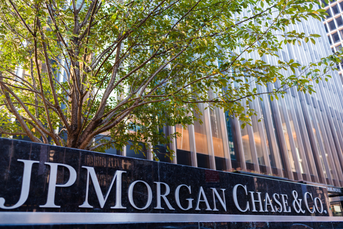Credit Suisse, BofA debt swaps under scrutiny

Probe will consider if bond deals amount to 'bluewashing'.
Bond deals arranged by Credit Suisse and Bank of America Corp. in connection with debt swaps for emerging-market issuers are facing renewed scrutiny, after the International Capital Market Association issued new labeling guidelines.
The bonds were sold over the past few years to finance so-called debt-for-nature swaps, through which sovereigns refinance their debt in exchange for marine conservation pledges. Credit Suisse and BofA labeled the bonds “blue” to reflect those commitments.
Nicholas Pfaff, deputy chief executive and head of sustainable finance at ICMA, said issuers “are using the blue bond terminology, but doing something completely different.” That’s leading to “regrettable confusion,” he said in an interview.
Spokespeople for Credit Suisse and BofA declined to comment. ICMA is the most widely followed global standard setter in debt markets, with investors, issuers and underwriters following its guidelines on a voluntary basis. The blue bonds arranged by Credit Suisse and Bank of America were sold before ICMA had set clear standards around how to label such instruments.
Blue bonds are a small but growing corner of the sustainable debt market, which is currently dominated by green bonds. To warrant a green or blue label, a bond issuer must put all the proceeds generated through a sale toward environmental (green) or maritime (blue) goals, according to ICMA.
The blue bonds arranged by Credit Suisse and Bank of America were used to help refinance over $1 billion in debt for Belize, Barbados and Gabon over the past few years, as part of a blue bond program created by The Nature Conservancy (TNC), a US nonprofit. A spokesperson for TNC declined to comment.
In all three cases, the proceeds of the bonds covered the refinancing operation, with only a small amount of money going toward marine conservation, documents attached to the deals show.
ICMA defines green bonds as “any type of bond instrument where the proceeds or an equivalent amount will be exclusively applied to finance or refinance eligible green projects,” with blue bonds representing “a subset of that,” Simone Utermarck, director of sustainable finance at ICMA, told Bloomberg. The blue bonds being sold in connection with debt-for-nature swaps are “a completely different construct,” she said.
There’s been “genuine confusion around terminology, which we aim to address,” Pfaff said.
The nascent market for blue bonds is still finding its footing, and remains unregulated. Against that backdrop, analysts at Barclays Plc said earlier this year that the blue bond label was being applied too liberally in the debt-for-nature-swap market, and warned that the practice represented a “real risk of greenwashing.”
Bankers behind the deals have listed the risks investors face, in the documents accompanying the bonds.
In its prospectus for a $500 million blue bond backing a debt-for-nature swap for Gabon, BofA said investors “should be aware” there’s no guarantee “as to the compliance of the notes with any blue, green or other sustainable investment criteria, principles or guidelines or market practice.”
Still, Pfaff said ICMA doesn’t “underestimate the risk” of market participants in general “entertaining ambiguity about whether something is a use-of-proceeds bond or not.” This would be “a significant negative development,” he said.
There are signs that some bankers are adjusting their approach. A deal arranged earlier this year by Credit Suisse — now part of UBS Group AG — avoided the blue label on a bond backing a $656 million swap for Ecuador. Instead, it was marketed as a “marine conservation-linked bond.”
Accurate labeling matters as such bonds feed into the wider market for sustainable debt, which ICMA estimates is worth about $3 trillion. Meanwhile, a growing number of banks has voiced interest in arranging debt-for-nature swaps, including HSBC Holdings Plc, Citigroup Inc., Barclays Plc and Standard Chartered Plc.
Some investors are already treating bonds tied to debt-for-nature swaps with a degree of caution. Alecta AB, a Swedish pension fund that holds blue bonds issued in connection with a swap for Belize arranged by Credit Suisse, doesn’t include the investment in its disclosures on green bonds. Instead, the investor categorizes the bond under “other investments with social and environmental impact,” according to Carina Silberg, Alecta’s head of governance and sustainability.
WHAT BLOOMBERG INTELLIGENCE SAYS:
“There are many countries that may be able to benefit from debt-for-climate-type swaps. A recent International Monetary Fund (IMF) analysis identified 34 low and middle-income countries with an overlap of high climate threats and fiscal-crisis risks…We see the potential for debt-for-climate swaps to play a growing role in helping countries to tackle existing funding issues and environmental conservation at the same time.”
Click here for the full report by Bloomberg Intelligence senior ESG analyst Christopher Ratti.
Fiscal Risk and High Climate Risk Countries
Learn more about reprints and licensing for this article.








